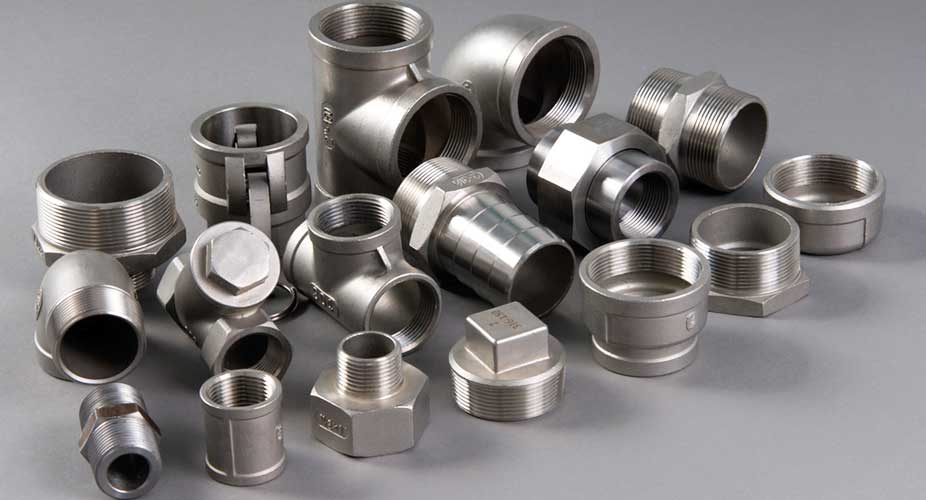
M-Pipe & Fitting Solution Inc is a reputable company that manufactures and supplies high-quality forged elbow fitting. ASTM A182 and ASME SA182 are specifications that define the requirements for forged elbows used in piping systems. An elbow is a type of pipe fitting used to change the direction of fluid flow in a piping system. It is typically used when there is a need to redirect the flow of liquid or gas or to avoid obstacles in the piping layout. The ASTM A182 and ASME SA182 standards ensure that the forged elbows meet specific material, dimensions, and performance requirements.
ASTM A182 and ASME SA182 are widely recognized and accepted standards in the industry. These standards cover forged elbow fitting made from various materials such as carbon steel, alloy steel, stainless steel, and other high-temperature materials. The specifications provide guidelines for the manufacturing process, heat treatment, mechanical properties, dimensions, and testing of the forged elbows.
Material Requirements: ASTM A182 and ASME SA182 specify the material requirements for forged elbows. These standards classify the elbows based on the material grade, which determines the elbow’s chemical composition and mechanical properties. Standard material grades used for forged elbows include ASTM A105, ASTM A350, ASTM A182 F304, ASTM A182 F316, and many others. The choice of material grade depends on the application, temperature, pressure, and corrosion resistance requirements.
Manufacturing Process: Forged elbows are manufactured using a forging process, which involves shaping the material by applying compressive forces. The process starts with selecting the appropriate raw material, followed by heating the material to a suitable temperature. The heated material is then shaped using forging equipment, such as hammers or presses, to obtain the desired shape of the elbow. The forged elbows are heat-treated to improve their mechanical properties, such as strength and flexibility.
Dimensions and Design: ASTM A182 and ASME SA182 provide detailed guidelines for the dimensions and design of forged elbows. These standards specify the acceptable range of sizes, wall thickness, and angles for the elbows. The dimensions are defined in terms of nominal pipe sizes (NPS), which indicate the approximate inner diameter of the elbow. The standards also include design considerations, such as the radius of curvature and the center-to-end dimensions, to ensure proper fit and compatibility with the piping system.
Performance and Testing: Forged elbows are subject to various tests to ensure their performance and quality. ASTM A182 and ASME SA182 outline the required tests, such as hydrostatic testing, non-destructive examination (NDE), and mechanical testing. Hydrostatic testing involves pressurizing the elbows with water to verify their integrity and resistance to leakage. NDE methods detect internal or surface defects, such as ultrasonic testing or radiographic inspection. Mechanical testing evaluates the physical and mechanical properties of the elbows, including tensile strength, yield strength, and hardness.
Applications: Forged elbows find extensive applications in industries such as oil and gas, petrochemical, power generation, and chemical processing. They are used in piping systems to change the flow direction, connect different pipe sections, or accommodate pipe diameter changes. The forged elbows provide a reliable and leak-free connection, ensuring the smooth operation of the overall system. They are available in various types, including 90-degree elbows, 45-degree elbows, and reducing elbows, to suit different piping configurations.
ASTM A182 and ASME SA182 provide essential specifications for the manufacturing and performance of forged elbows. These standards ensure the elbows meet the necessary material requirements, dimensions, and testing criteria. By adhering to these standards, manufacturers can produce high-quality forged elbows suitable for various industrial applications. Proper selection and installation of forged elbows are crucial for piping systems’ safe and efficient operation. They play a significant role in maintaining the integrity and reliability of the overall infrastructure.
In summary, ASTM A182 and ASME SA182 are widely recognized standards that define the requirements for forged elbows used in piping systems. These specifications cover material grades, manufacturing processes, dimensions, and performance testing. By following these standards, manufacturers can ensure the quality and reliability of forged elbows, essential components in piping systems across industries. Proper selection, installation, and maintenance of forged elbows are crucial for the smooth operation and longevity of the overall infrastructure. M-Pipe & Fitting Solution Inc provides certified forged fitting that meet international standards such as API, ASTM, and ISO 9001:2015.
| Forged Elbow Fittings | Specifications |
|---|---|
| Forged Elbow Types | Socket Weld Fittings: Elbow 90 Deg, Elbow 45 Deg. |
| Schedule | SCH5, SCH10, SCH20, SCH30, SCH40, STD, SCH80, XS, SCH60, SCH80, SCH120,SCH140, SCH160, XXS |
| Size | 1/8″NB to 24″NB & 1/4″OD TO 24″OD AND 6.35mm to 254mm OD Thickness: 0.6mm to 20mm |
| Type | Elbow 90, Elbow 45 |
| Stainless Steel | ASTM / ASME 201, 202, 301, 304, 304L, 310, 310S, 316L, 316TI, 317, 317L, 321, 347, 409, 409M, 409L, 410, 410S, 420, 430, 431, 441, 444, 446, 17.4PH, 904L |
| Super Duplex Steel | S32750 |
| Duplex Steel | ASTM / ASME SA 790 UNS NO S 31803 , S 32205 , S 32550 , S 32750 , S 32760. |
Forged elbows are pipe fittings used in piping systems to change the direction of fluid flow. They are made by heating and shaping metal, typically carbon or stainless steel, into a curved shape with a desired angle of bend. Forged elbow grades refer to the different levels of quality and strength of the material used to make the elbow. The most commonly used grades for forged elbows are ASTM A234 WPB, ASTM A420 WPL6, and ASTM A860 WPHY 52/60/65/70.
-
Gas Processing Industry
-
Pharmaceuticals Industry
-
Chemical Industry
Pulp and Paper Industry
-
Sea Water Equipment
-
Heat Exchangers
-
Condensers

